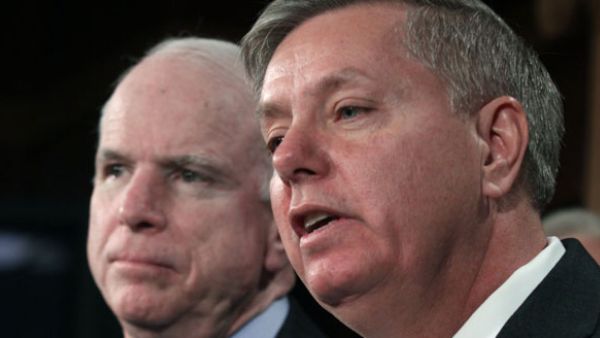US Lawmakers called on President Barack Obama Sunday to "repair ties" with the Kingdom of Saudi Arabia, according to AFP sources.
The congressmen's comments follow Saudi Arabia's intelligence chief Prince Bandar Bin Sultan al-Saud's announcement last week that it will limit cooperation and collaboration with Washington in protest of the current US policy toward Syria and Iran.
House Intelligence Committee Chairman Mike Rogers cited a 2011 US decision to keep the Syrian conflict "at bay" and its more recent decision to diplomatically engage with Iran regarding its nuclear program as key turning points undermining relations with the Gulf ally.
"[The issues of Syria and Iran] are critical issues to the Saudis, to the Qataris, to the Jordanians and to others in the Arab League that I think rattled their faith in the administration's ability to protect them in a very dangerous world,” Rogers told CNN.
Riyadh also declined membership to the UN Security Council in protest of the body's "failure to do more to end the Syrian war," with one Saudi official saying that is was directed particularly as a "message for the US, not the UN."
Saudi intelligence plans to scale back operations with the US CIA to train Syria rebels, and is planning to work with other allies, such as a Jordan and France.
“So what you see is that friction starting to take hold and we have to repair this and repair it soon....[otherwise] they're going to find other friends. I argue that's not good for the United States," said Rogers.
In a Washington Post op-ed, two other US congressmen described Obama's Middle East policy as a "failure" and urged caution with future US proceedings with Iran.
Republic Senators John McCain and Lindsey Graham said that they had seen "no indication" that Obama honored commitments "reduce Syrian President Bashar al-Assad's military capabilities, aid the opposition, and help negotiate an end to the regime."
They also expressed doubts regarding the proposed Geneva peace talks to end the bloody conflict in Syria, saying the negotiations have "little to no chance of success."
In order to restore ties with Saudi Arabia, McCain and Graham lastly cautioned Obama in his proceedings with Iran saying that the US should be "prepared to suspend the implementation of new sanctions" only if Iran complies with calls to suspend its uranium enrichment programs. "We should not accept that the centrifuges spin while the diplomats talk,” they said.

US Lawmakers John McCain and Lindsey Graham expressed doubts regarding the success of the proposed Geneva peace talks in ending the conflict in Syria (AP)








